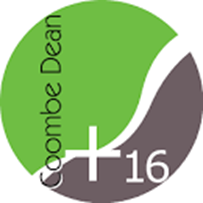English Literature
English Literature A Level |
|
|
Qualifications Exam board: AQA Level 3 Advanced GCE in English Literature B https://www.aqa.org.uk/subjects/english/as-and-a-level/english-literature-b-7716-7717 |
|
|
Entry Requirements GCSE Grade 6+ in English Language and/or Literature |
|
|
Skills required Students who enjoy this course are interested in people – how the act, how they feel, why they do what they do. They have questions about humanity, society, morality and creativity. They enjoy thinking critically, questioning assumptions and looking for alternative viewpoints. They love reading and stories of all kinds. They have a keen eye for detail and are interested in the ways that writers use their skills to convey messages and manipulate emotions. |
|
|
Course outline English Literature is a two-year A-level course with no external examinations at the end of year 12. The course covers a variety of modern and historical Prose, Poetry and Drama texts from Shakespeare and to Ian McEwan, with many more along the way. The content is designed to introduce students to a range of challenging and interesting texts so that students are able to discuss literature holistically within its context and through a range of critical approaches. In addition to 'set texts' which you have to study, you will be expected to explore your own interests: a willingness to ‘read around’ texts is essential. |
|
|
Student testimony “It’s a challenge … an exciting and extremely rewarding one. Seeing your knowledge gradually come together … it doesn’t get better than that!” “A level is so different to GCSE. It’s my favourite subject. You learn about aspects of English Literature as a whole, like the history and different movements which really helps your understanding” “Studying English Literature provides me with a range of challenges from reading and studying difficult texts to class debates. It’s a very interesting and rewarding A level.” |
|
|
Career paths English Literature is a highly respected A level and is facilitating subject for Russell Group Universities. As well as an English Literature degree itself, students of Literature might go on to study for degrees in a range of subjects including History, Sociology, Psychology, Drama and Theatre Studies and Law. Medical Schools value the subject highly. It is also very effective in developing transferrable skills such as communication, close analysis, and the ability to construct a well-argued case. These are highly valued in a range of graduate careers such as Teaching, Business and Finance, Journalism, Publishing, Law and Politics. |
|
|
Course Outline/Assessment |
|
|
Paper 1: Literary genres Aspects of tragedy |
External Examination 40% |
|
Paper 2: Texts and genres: Elements of crime writing |
External Examination 40% |
|
Non-exam assessment: Theory and independence: Two essays of 1250–1500 words. |
Assessed by teachers: Moderated by exam board 20% |









